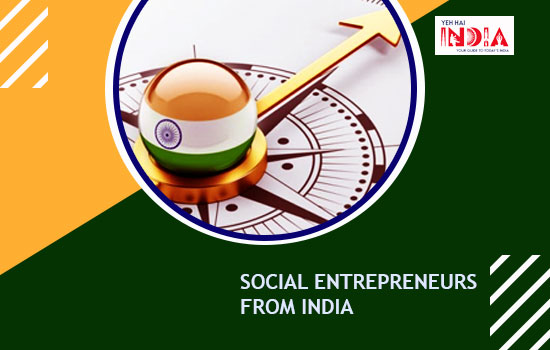There are many social issues in India that need to addressed.
Be it poverty, pollution, the taboo around mensuration, and much more. This article talks about all the social entrepreneurs who decided to take the matter into their hands to provide effective solutions.
Problem: Sanitation, Hero: Bindeshwar Pathak
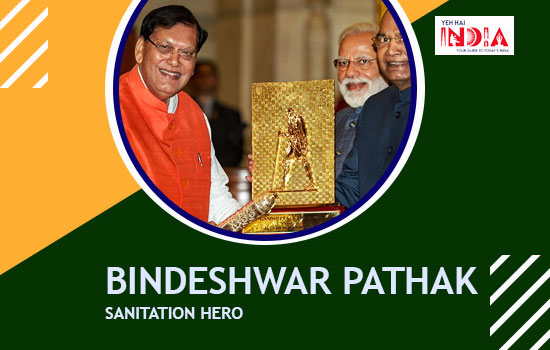
The man behind the Sulabh International Museum of Toilets in Delhi is Bindeshwar Pathak.
He has been working for quite a long time to feature India’s sanitation issue and end manual scavenging.
Manual scavengers as a rule have a place with lower positions and clean human excreta from dry restrooms.
Recommended Story – 10 Successful Women Entrepreneurs in India
While trying to change this, Pathak developed easy and cost-effective toilets called Sulabh Shauchalaya for provincial territories.
He has successfully been able to make more than 600 towns across India scavenging-free.
Also, he has delivered around 1,000,000 scavengers so far who’ve proceeded to secure more stately positions.
Pathak doesn’t consider his work done at this point. This is because there are as yet more than 2,000,000 latrines in India that need manual cleaning.
He keeps on bringing issues to light on such sanitation issues through unique methods. Eg: the Sulabh International Museum of Toilets in Delhi is only one of them.
Problem: Pollution, Hero: Bisman Deu

Bisman Deu established her first organization, GreenWood, when she was only 15 years of age.
She designed an item pointed towards killing one the of the greatest reasons for air contamination in North India i.e., crop burning.
Not long before the beginning of winter in India, ranchers in Harayan and Punjab harvest the crops and burn the left-overs.
As a student, Deu perceived how burning crops on her family ranch was severely affecting the climate.
It is then that she began testing in her folks’ kitchen and invented another assortment of sustainable structure material from rice waste.
This material can be utilized as a base for building houses in the rural areas of the country.
Deu, presently a student at the University of Warwick, has additionally begun an organization called Color the World Pink.
This organization urges young ladies to become entrepreneurs and pioneers from an exceptionally youthful age.
Problem: Lack of resource in rural areas (for women), Hero: Chetna Vijay Sinha
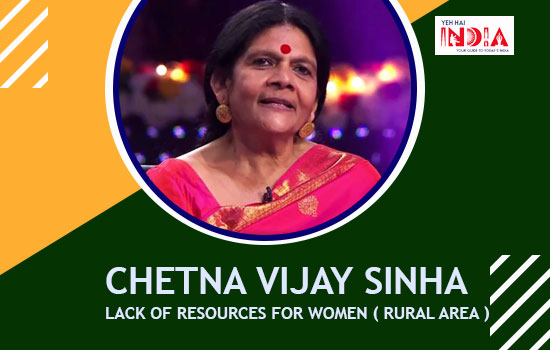
Chetna Vijay Sinha through her organization, Mann Deshi Foundation, has been engaging ladies in provincial India by providing them access to microfinance.
Also, different methods for a money-related guide for their innovative endeavors and subsequently making them more independent.
Sinha oversees three foundations to empower rural ladies to set up new jobs.
The first one being a women-owned rural cooperative bank that expands the scope of monetary administrations.
The second one is a rural mobile MBA school that offers entrepreneurship and management training.
Now, the last thing is an office of commerce for entrepreneurs that encourage new social networks and update them about current business sectors and strategies.
Mann Deshi Group of Ventures has helped a huge number of ladies set up organizations in their own neighborhoods.
It intends to make one million rural women entrepreneurs.
Problem: No Crowdfunding platform, Hero: Ishita Anand

Ishita Anand is the founder of India’s first online social crowdfunding platform: BitGiving.
Anand began the organization in 2013 when the possibility of crowdfunding was still new in the country.
After five years, BitGiving has figured out how to help assorted causes as discovering sponsors for the National Ice Hockey group. Also, raising Rs 60 lakhs (£67,000) for the Nepal earthquake which happened in 2015.
Before they began camping on BitGiving, very few individuals in India even realized that there was an ice hockey team in the country.
They figured out how to raise Rs 6.5 lakhs (£7200) within 20 days. Moreover, they even discovered sponsorships from a couple of large corporate houses.
Moreover, This permitted the team to take an interest in the Asian Championships in Kuwait in 2015. Through BitGiving, Anand helps people to achieve their aspirations.
Recommended Story – Mask Pollution: How Startups and People Are Solving It
Problem: Financial status of farmers, Hero: Aditya Agarwalla
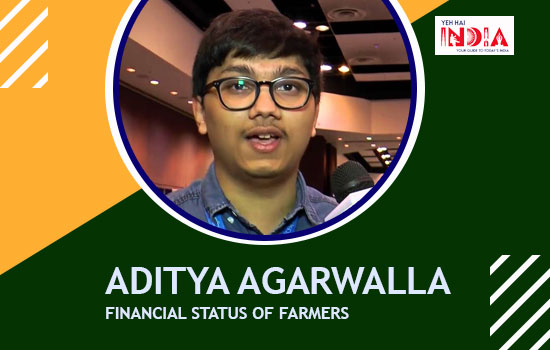
Aditya Agarwalla was a computer science major at Princeton University before he chose to exit the school.
He then went on working all day for Kisan Network, an organization he established with his dad Sanjay.
Kisan Network is an application that helps farmers in India acquire more pay from their yields by disposing the chain of middlemen who usually make more profits in the process.
Despite the fact that agriculture is the pillar for 70% of rural families in India, there’s an absence of mindfulness about market rates among farmers.
Agarwalla targets changing this and improves bargains for farmers through his application.
Kisan Network additionally assists ease of business as once the deal is made, the organization deals with the pick and drop facility. This is done to ensure the farmers don’t need to go for a significant distance to sell their items.
Moreover, Over 1,000,000 pounds of yields have been sold through the application up until now and farmers have had the option to acquire 10% more than prevailing rates in the market.
Problem: Taboo around Menstruation, Hero: Aditi Gupta
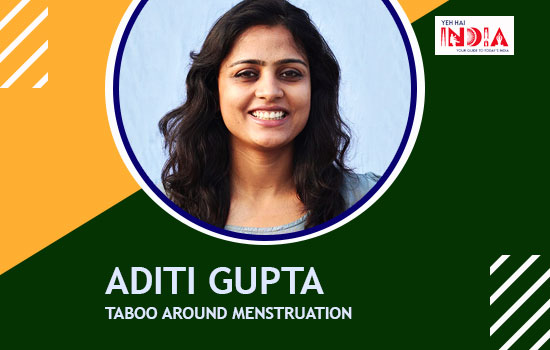
As you all know, menstruation continues to be a taboo subject in India, and ladies are as yet viewed as impure during their periods in numerous pieces of the country.
Aditi Gupta, who grew up dealing with similar issues, established Menstrupedia to teach society about feminine well-being and cleanliness.
In addition to other things, Gupta has launched an interesting and insightful comic book for young ladies between the ages of 9 and 14.
This comic encourages them and their folks to talk about periods in a better time and agreeable way.
Her foundation has contacted a large number of individuals, destroying the deep-rooted disgrace encompassing the menstrual cycle.
It’s very well said, “Be the change you want to see in the world.” All these social entrepreneurs deserve appreciation not just for looking upon these social issues but also for providing solutions to them.


